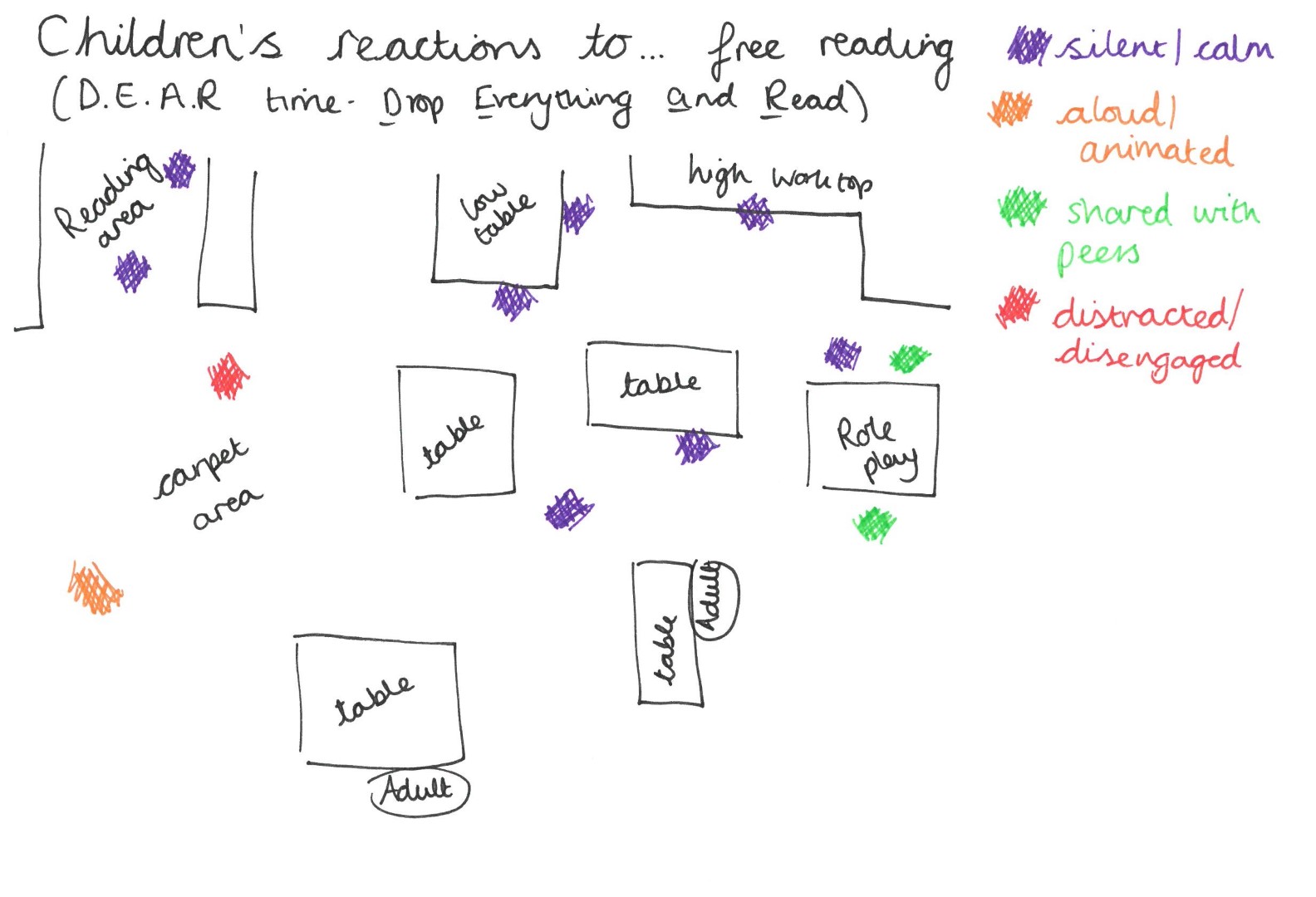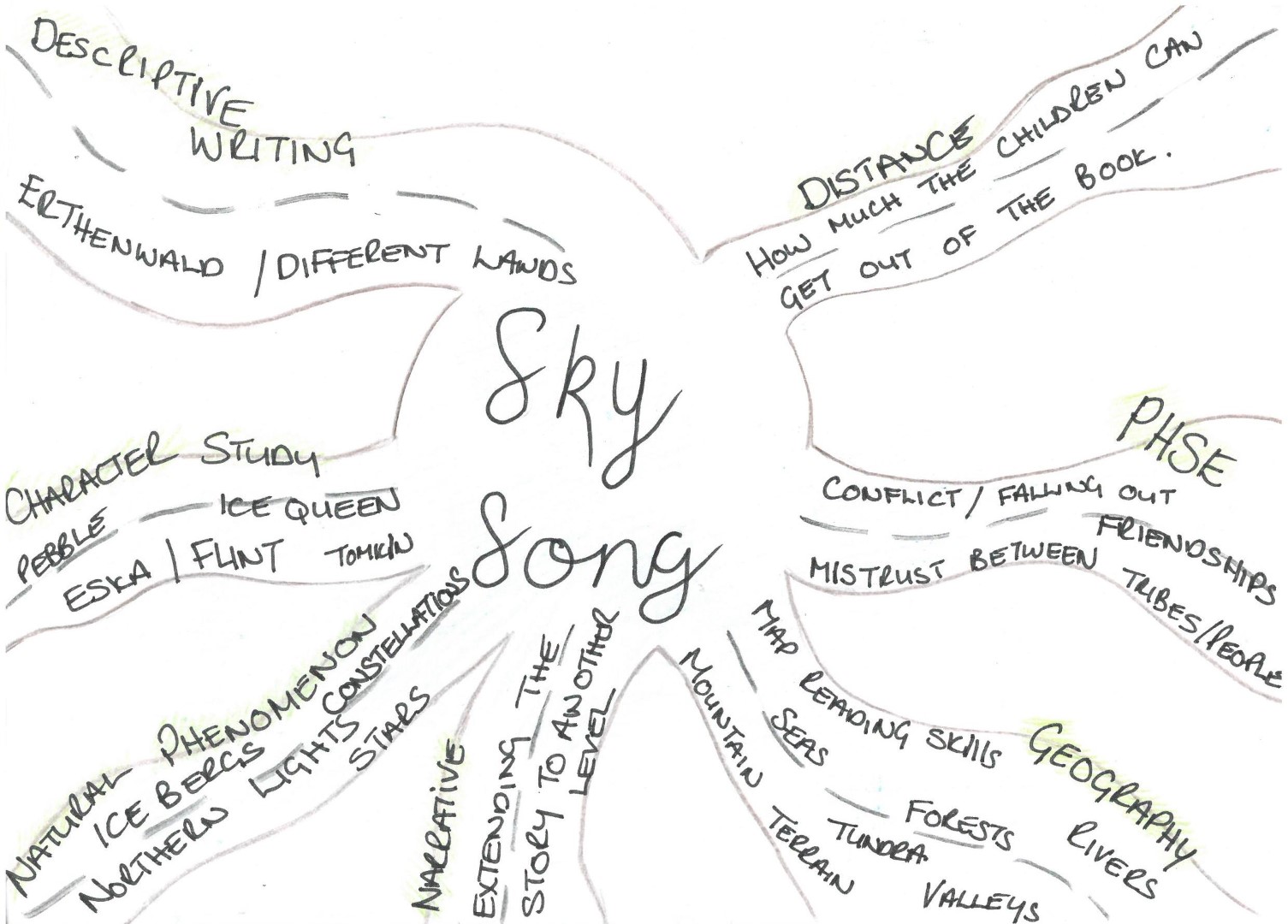LEARNER ENGAGEMENT
Children's reactions to a story
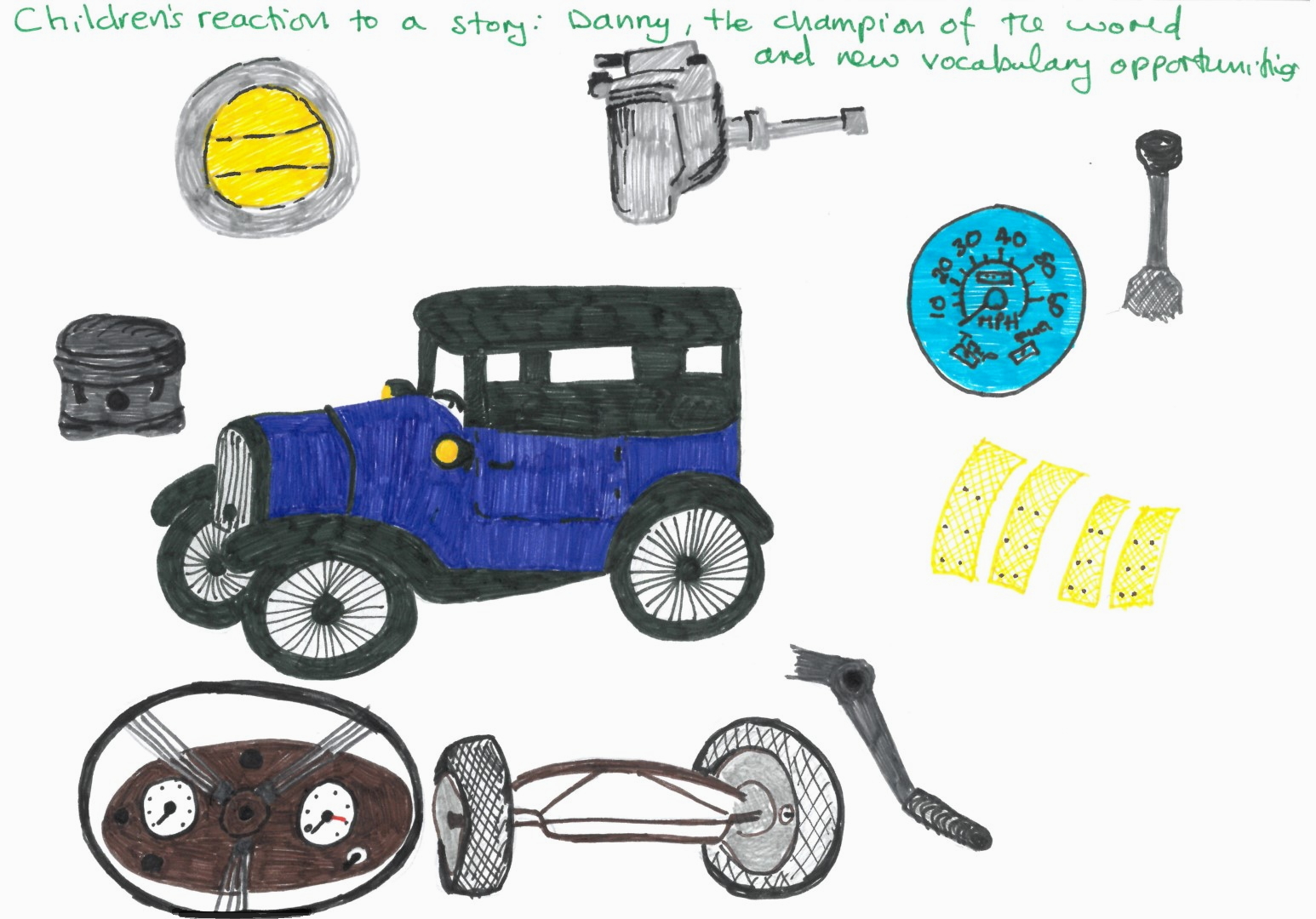
"So now by explaining what all those words meant I think the car then became more important. They understood how it worked and the fact that Danny is only eight years old and he drove it and that's the same age as the children are I'm reading the story to, they try to imagine themselves driving a car...
When I read it before it's more about the poaching and the pheasants and the beaters and the keepers but this group really wanted to know about the cars, all the different parts … they were interested in the vocabulary and the workings of a car."
Children's reactions to independent reading
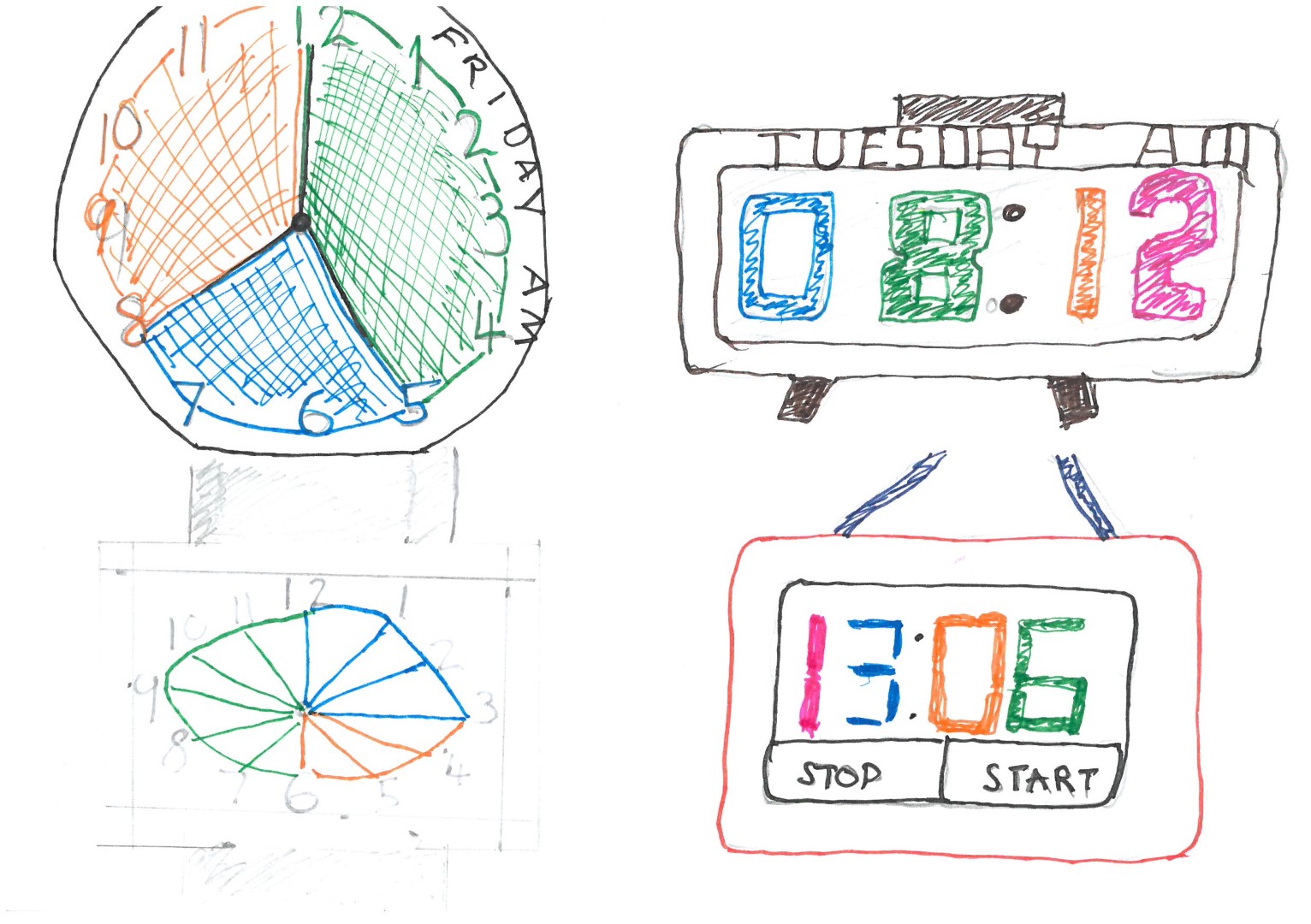
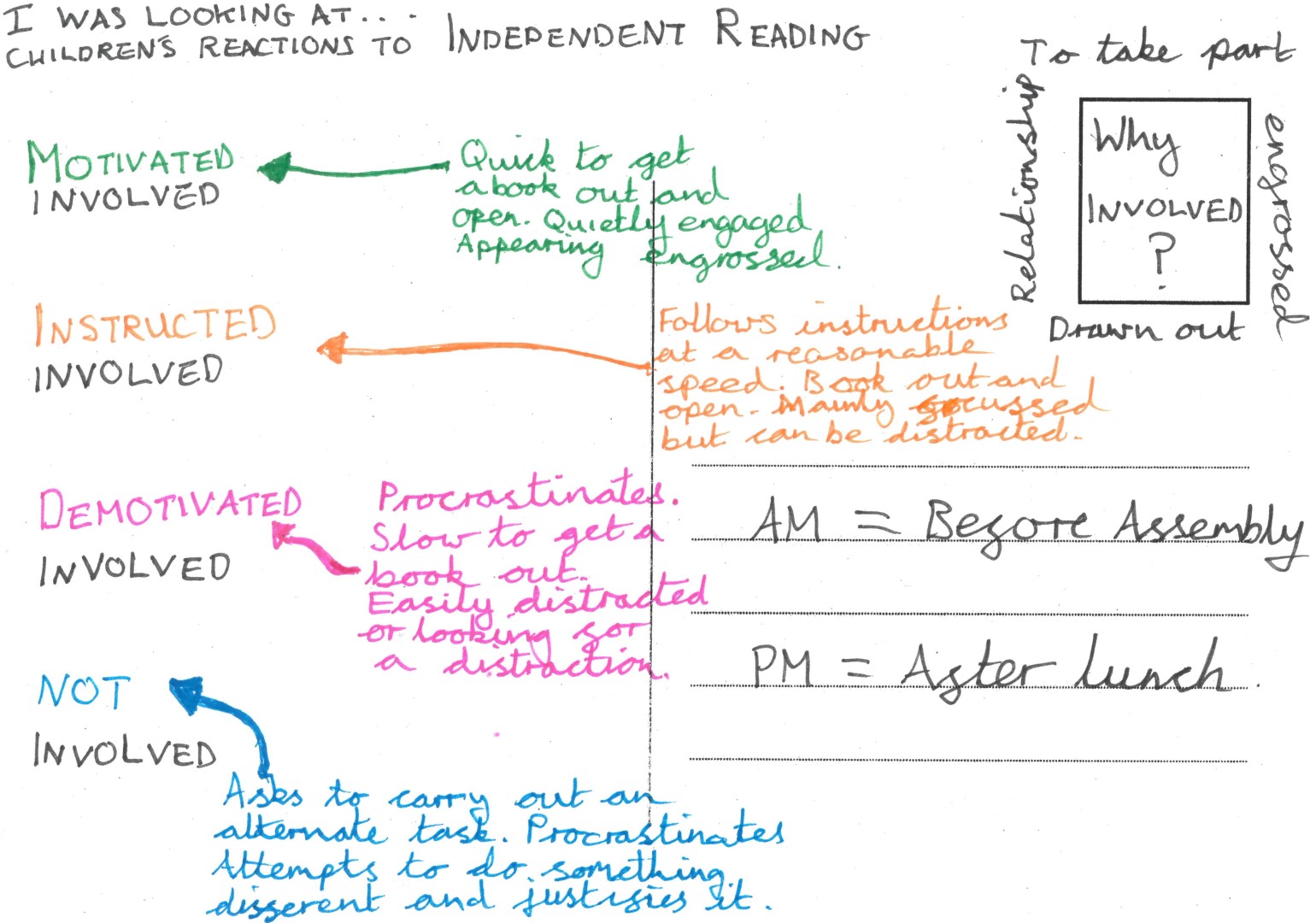
“It's one of those things isn't it because it's quite heavily based on my opinion of what I think a motivated reader looks like, so I guess that's – it's sort of what I've tried to say on the back, is this is what I think they look like if they're a motivated reader … It is funny though isn't it? It's interesting because that was one of my dilemmas as I was doing it, was this is just my opinion really at the end of it all but I guess that's why I wanted to put a description of the behaviour, so it's based more on what I'd seen in the weeks than building up to the four occasions where I actually recorded it.”
Whole class reading: Children's responses to 'HOLES' by Louis Sachar

"... when I've noticed and I've tried to read we get partway through a book and you can see children starting to think, oh, it's time to switch off but this one, you could see them on the edge of their seats and they were shouting out saying (excited noises) and you could see them making the connections. Like I said, I tried to read it with the previous class and I think we got to Chapter 7 and the children made a unanimous decision that they didn't want to continue with it because it just wasn't interesting them at all, whereas this class were so eager to read on.
I was very open with them and said 'I want to see how much you enjoy this book', just because, again, it's the reaction to certain books I think because I've had books before that have fallen so flat and then I wanted to unpick what it was about this book but I think it was the mystery elements throughout it and then the connections that they could pick up and make and the conversations they could have with each other and the fact that they could turn to each other and go, 'Did you notice that bit? Did you notice those initials were the same?' You could hear them talking about all the things we'd picked up on in the session afterwards."
Creativity through group story telling
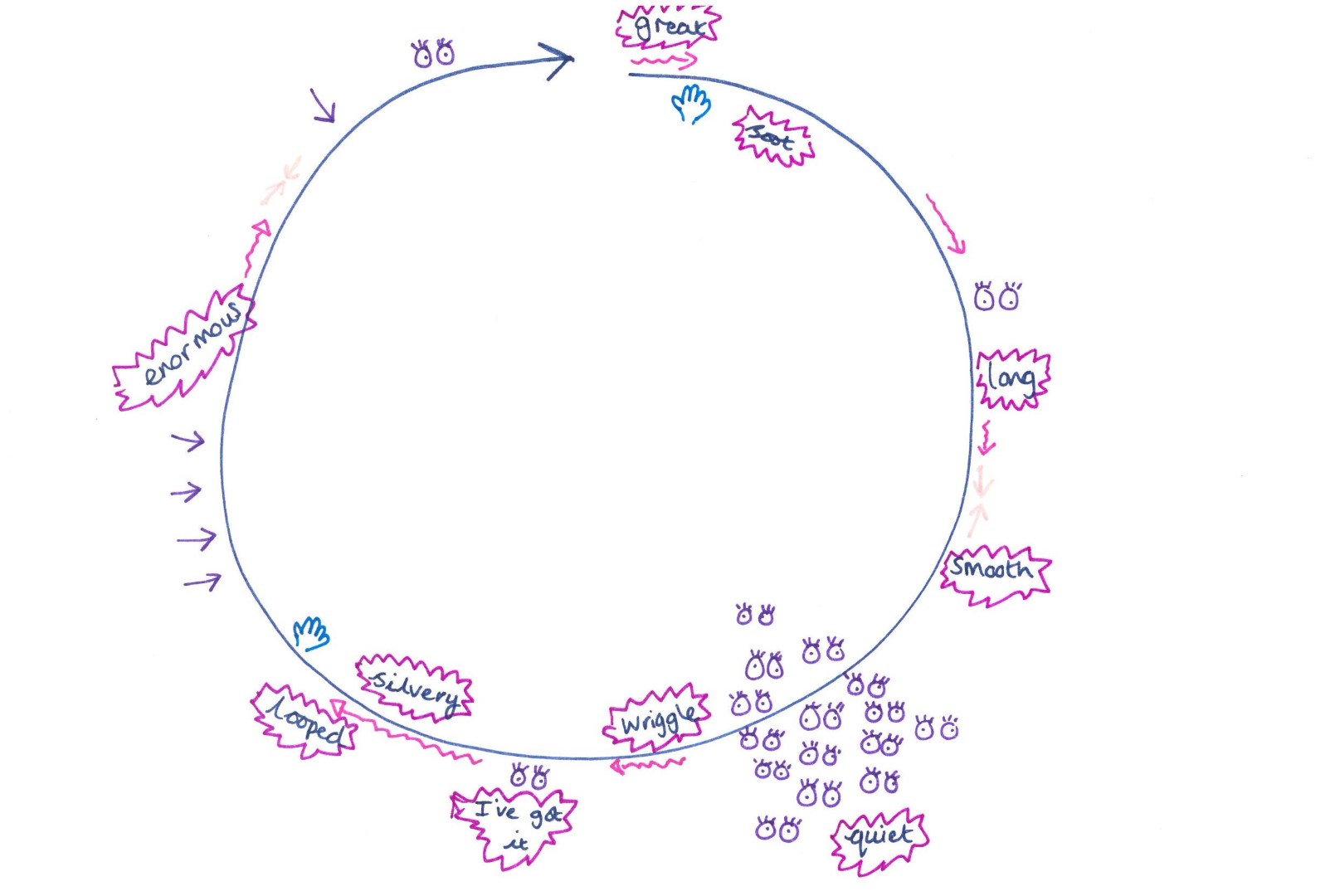
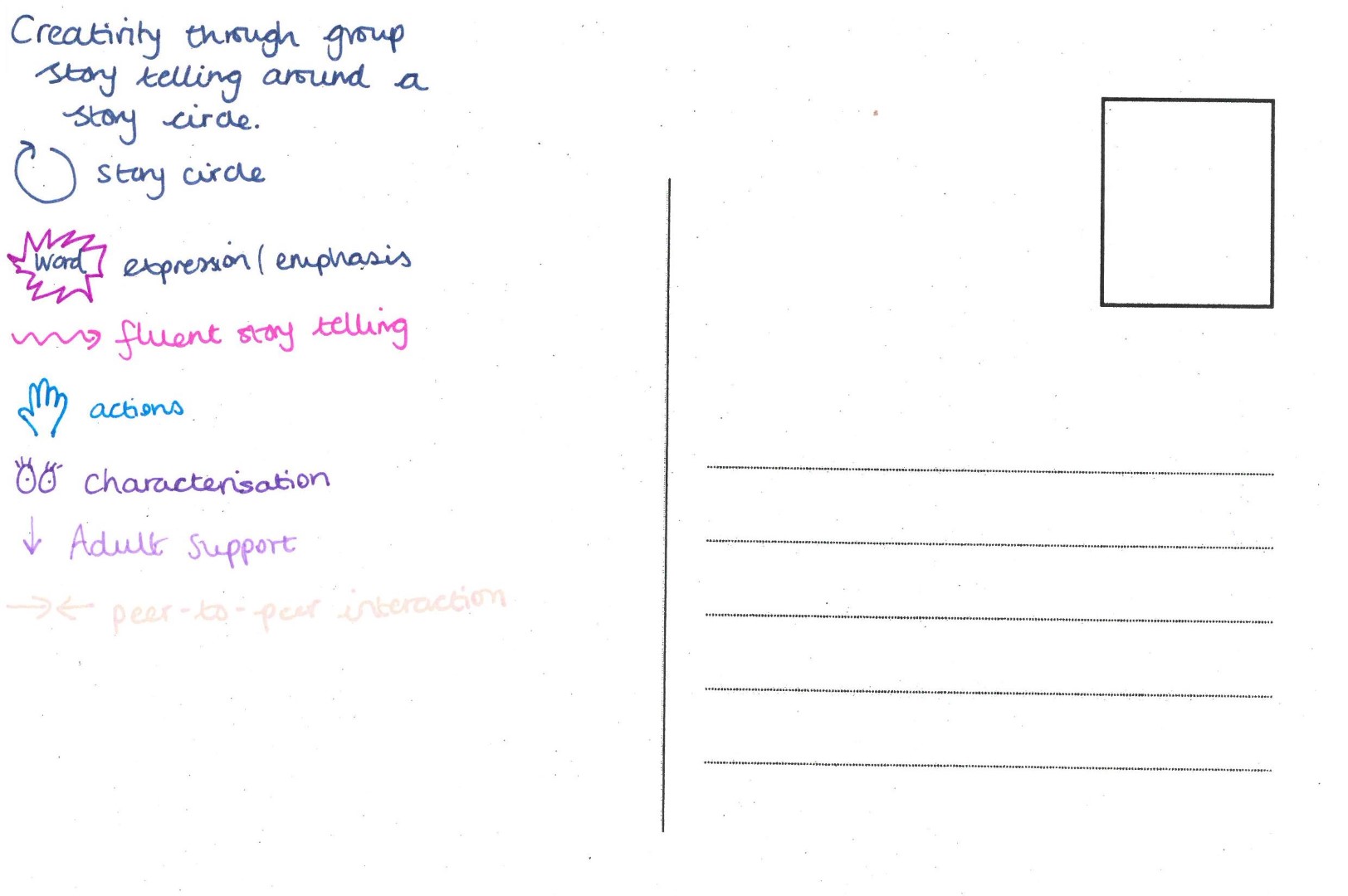
"'Was there anything that surprised you about when you represented it like that?'
'It made me think about how little I hadn't had to support them because we'd done something similar ....and there would have been arrows all over it so we're obviously getting better at – Because what they found really hard at the beginning was to follow on and actually listen to each other with what's previous and it would get to them and they'd just be like – me? Really? Okay? No idea what happened last.'
'That's a skill isn't it, a real skill?'
'Yeah, so they've got much better at passing it around and there are even some moments of fluency which I wasn't sure there would be.'"
Children's reactions to free reading
"So I just wanted to look at children's reactions to the free reading that we're doing. … I colour coded them whether they were silent and calm when they were doing it, whether they were talking aloud, because some of them at that age, they read quite animated because they've been asked to read with expression, so some of them read to themselves like that as well. Whether they were sharing a book with a peer, because even though it's meant to be independent they still find things they want to point out, and then whether they were disrupted and disengaged."
What do children value in their English learning?


“This is a reflection of my children. I got a group of them and I asked them – what do they value about their English learning this year? What I said to them was, 'Choose something that makes you proud.'”
“So they're kind of interpreting what you've asked them differently possibly. Some are seeing it as what do you think and some are genuinely what they're – ”
“Well, I think what are they proud of but I wonder if because I've shown interest in something they've converted that in to, oh, 'I should feel proud about this because I've been told this is a successful piece of work.'”
“Maybe at Year 2 it's quite hard for them to think on their own writing and work out what they should and should not be proud of. It's being able to have that feeling just of yourself without someone helping you decide for what was good work and what – ”
“They took ages to choose actually. I was thinking this was going to be quite a – They went through every page very meticulously and they were obviously proud of quite a lot of it so they were working very slowly and then they had to go, 'Oh, I don't know which one.'”
How much children can get out of a book
"As we go along I really do dissect the book without making it, oh, let's stop, without making it boring. By the time we've finished they're just so into it they didn't want it to finish, please, you know, is there a sequel? Whoa! Let's ask Abi Elphinstone if she'll write a sequel!
So the creativity comes from the book but also from the children's questions and then from their questions I'm quite happy to go and follow down, so that's what it's meant to show, go down different roads depending on what they ask, what they enquire, what they want to know about."
